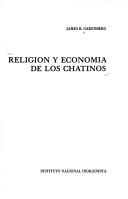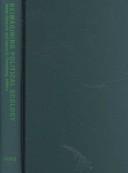| Listing 1 - 10 of 14 | << page >> |
Sort by
|
Book
ISBN: 1646020537 1575069768 Year: 2019 Publisher: University Park, Pennsylvania : Eisenbrauns,
Abstract | Keywords | Export | Availability | Bookmark
 Loading...
Loading...Choose an application
- Reference Manager
- EndNote
- RefWorks (Direct export to RefWorks)
"A new study of Old Testament atonement in the Priestly Literature that employs a modified text-immanent strategy to investigate how sacrifice works. Focuses on Priestly Torah texts found in Leviticus 1-16, Exodus and Numbers"--
Atonement (Judaism) --- Kpr (The Hebrew root) --- Sacrifice in the Bible. --- Kfr (The Hebrew root) --- Hebrew language --- Roots --- Bible. --- Kitāb-i Va-yīgrā (Book of the Old Testament) --- Lāviyān (Book of the Old Testament) --- Leviticus (Book of the Old Testament) --- Lewigi (Book of the Old Testament) --- Newigi (Book of the Old Testament) --- Ṿa-yiḳra --- Ṿayiḳra (Book of the Old Testament) --- Vayikro --- Criticism, interpretation, etc.
Year: 1993 Publisher: Oaxaca, Oax. Centro de Investigaciones y Estudios Superiores en Antropología Social
Abstract | Keywords | Export | Availability | Bookmark
 Loading...
Loading...Choose an application
- Reference Manager
- EndNote
- RefWorks (Direct export to RefWorks)
Book
ISBN: 0520041356 Year: 1981 Publisher: Berkeley University of California Press
Abstract | Keywords | Export | Availability | Bookmark
 Loading...
Loading...Choose an application
- Reference Manager
- EndNote
- RefWorks (Direct export to RefWorks)
Book
Year: 1993 Publisher: Oaxaca, Oax. Centro de Investigaciones y Estudios Superiores en Antropología Social
Abstract | Keywords | Export | Availability | Bookmark
 Loading...
Loading...Choose an application
- Reference Manager
- EndNote
- RefWorks (Direct export to RefWorks)

ISBN: 968822071X Year: 1987 Publisher: México, D.F. Instituto Nacional Indigenista
Abstract | Keywords | Export | Availability | Bookmark
 Loading...
Loading...Choose an application
- Reference Manager
- EndNote
- RefWorks (Direct export to RefWorks)
Book
ISBN: 9781646020539 1646020537 9781575069760 1575069768 Year: 2021 Publisher: University Park, PA
Abstract | Keywords | Export | Availability | Bookmark
 Loading...
Loading...Choose an application
- Reference Manager
- EndNote
- RefWorks (Direct export to RefWorks)
Multi
ISBN: 9781646020539 Year: 2021 Publisher: University Park, Pa Penn State University Press
Abstract | Keywords | Export | Availability | Bookmark
 Loading...
Loading...Choose an application
- Reference Manager
- EndNote
- RefWorks (Direct export to RefWorks)

ISBN: 0822336855 9780822336853 0822336723 9780822336723 9786613022400 1283022400 0822388146 Year: 2006 Publisher: Durham: Duke university press,
Abstract | Keywords | Export | Availability | Bookmark
 Loading...
Loading...Choose an application
- Reference Manager
- EndNote
- RefWorks (Direct export to RefWorks)
A collection of ethnographies grounded in second-generation political ecology, which focuses on the interchanges between nature and culture, and the local and the global.
Political ecology --- Human ecology --- Political ecology. --- Human ecology. --- Ecology --- Environment, Human --- Human beings --- Human environment --- Ecological engineering --- Human geography --- Nature --- Social ecology --- Green movement --- Social aspects --- Effect of environment on --- Effect of human beings on
Book
ISBN: 9781498545785 1498545785 Year: 2017 Publisher: Lanham : Lexington Books,
Abstract | Keywords | Export | Availability | Bookmark
 Loading...
Loading...Choose an application
- Reference Manager
- EndNote
- RefWorks (Direct export to RefWorks)
In this book, James B. Greenberg and Thomas K. Park take an anthropological approach to the economic history of the past one thousand years and define credit as a potentially transformative force involving inequalties, rather than an exchange of equal valued commodites. Guiding readers through the medieval period all the way to the modern day, and tracking through the Mediterranean and Europe, Greenberg and Park reorient financial history and position social capital and ethical thought at its center. They examine the multicultural origins of credit and finance, from banking to credit cards and predatory lending, and bringing us up to date, they explore the forces that led to the collapse of global credit markets in 2007–2008. This book is recommended for scholars of anthropology, history, economics, religion, and sociology
Finance --- History. --- History --- Economic history
Book
ISBN: 1498545793 Year: 2017 Publisher: Lanham, Maryland : Lexington Books,
Abstract | Keywords | Export | Availability | Bookmark
 Loading...
Loading...Choose an application
- Reference Manager
- EndNote
- RefWorks (Direct export to RefWorks)
| Listing 1 - 10 of 14 | << page >> |
Sort by
|

 Search
Search Feedback
Feedback About UniCat
About UniCat  Help
Help News
News